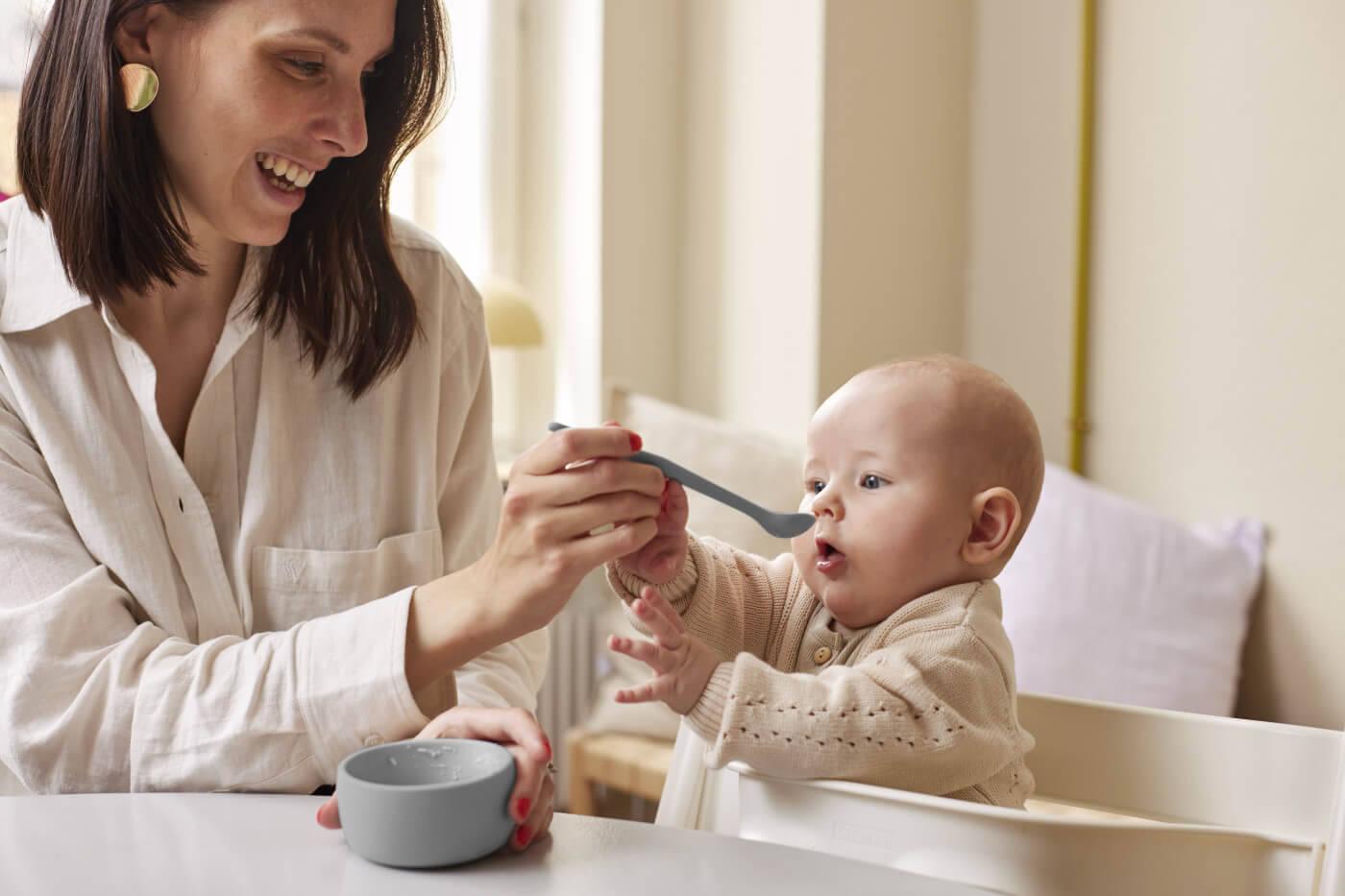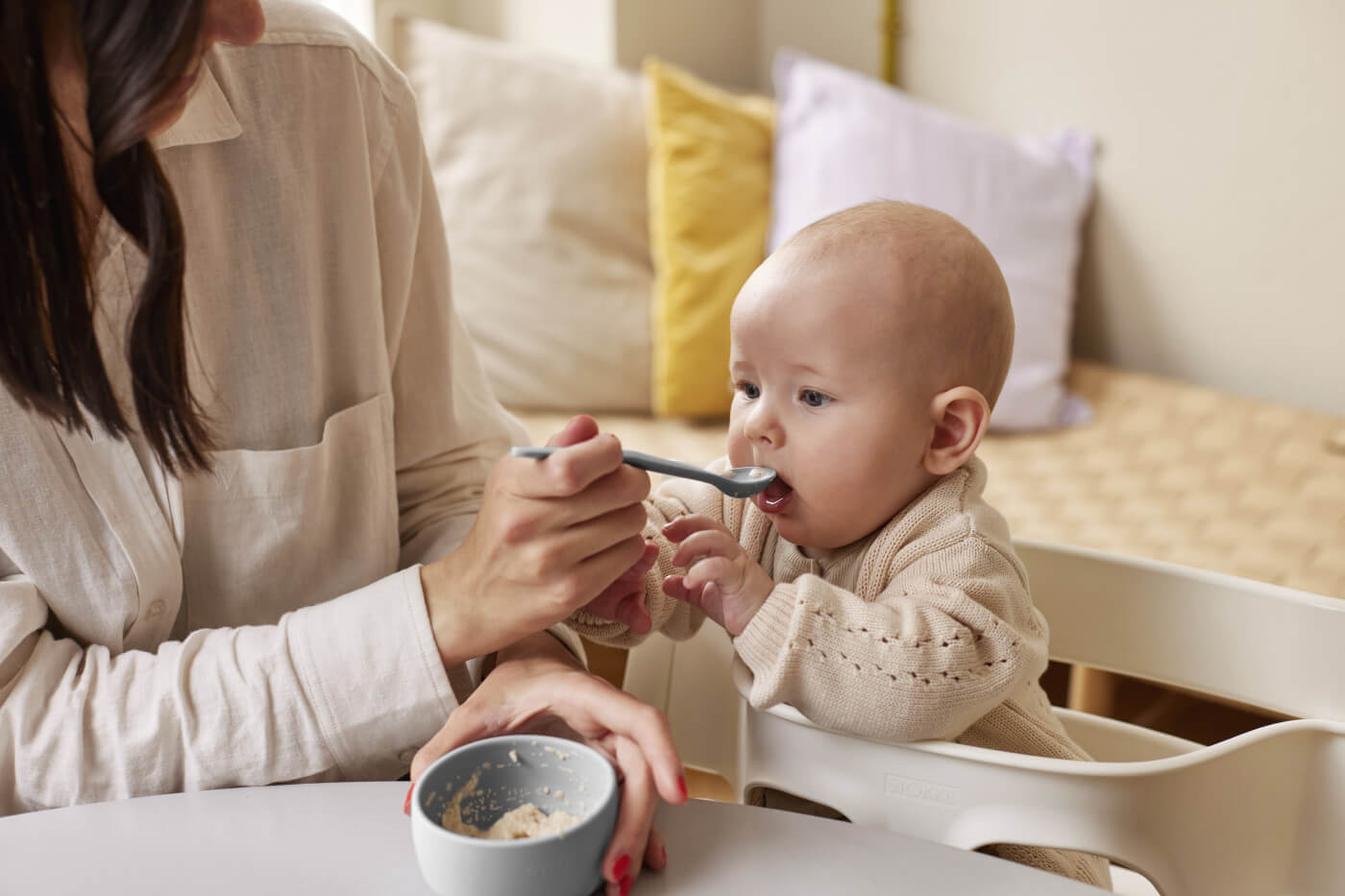As children grow, they need a lot of nutrients and vitamins. But what should your child eat? It's important to consider what they're eating as the food we eat when we're small affects our dietary habits later in life. For that reason, it's a good idea to keep an eye on your child's diet right from the start.
As soon as your child is one year old, he or she can basically eat the same food as the rest of the family. A good piece of advice is to research which types of food are the best for your child and then adjust the rest of the family's diet to match. In this way, the whole family is guaranteed a healthy and nutritious diet.
Here are some tips on how to ensure your child has a good diet:
Diversify:
It is important to have a varied and balanced diet, and the plate model is a good measure. Also, note that it's smart to vary proteins; even if your diet isn't vegetarian, it's a good idea to replace meat every now and then with other protein sources such as beans.
Regular meals:
Aim to make the meals and serve your family around the same time every day to ensure your body gets the energy it needs to perform. Also, try to avoid snacking between meals unless the snack is nutritious filled with antioxidants and fibre.
Vegetarian / vegan food:
Eating vegetarian or vegan food is good for both the environment and your health, and your child is no exception. You need to make sure your kids are getting all the nutrients they need, and with the right knowledge, you can find everything you need in beans, vegetables, root vegetables, etc.
Allergies:
You should always consider the nutritional needs of your children, especially in the case where they have food allergies. Your healthcare centres can provide you with solid advice and information on the best foods depending on the specific allergies involved, but above all, your choice should ensure they get the nutrients they require.
Amount:
You decide what to serve your family, but in terms of portions, let your child decide how much to eat. If you're worried your child is eating too little, reach out to a local childcare centre for support.
Age:
As noted above, a child that is just one year old can eat the same food as the rest of the family. However, keep in mind that the food they consume during their first two years should be fatter and less fibre-rich than the food older children and adults eat.
Beverages:
Water is the best choice of drinks for your meals. Milk is also good containing calcium but fills you up more which makes water a better drink to your meal. Avoid beverages with added sugar.
Fish:
Fish contains vitamins, minerals and omega-3 fat and is a healthy and important part of your meals. However, due to mercury levels in freshwater, try to eat a variety of different fish.
Avoid:
Try to avoid sugar and sugary substances that contain empty calories as much as possible. This covers sugary drinks, sweets, cakes, and ice cream. Also, avoid risk factors such as arsenic that is presented in many beverages and therefore a risk to children consuming it. It’s completely fine to treat yourself but do it in moderation.
Everyday life can be stressful, and it's hard to get the time to prepare the right kind of meals. Don't worry if you don’t manage to reach every single goal, it’s the big picture that matters. Your child might also refuse to eat some of the good food you serve, but even if it happens, don't give up. Try again another time, and let your child get used to different flavours. But then again, how many of us liked vegetables as kids?



